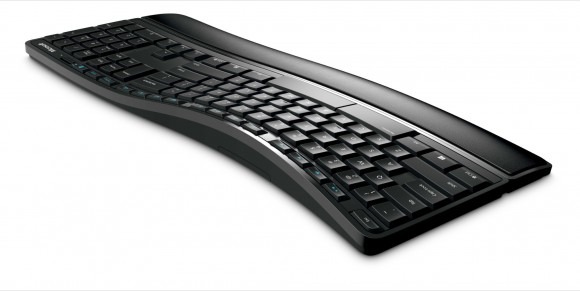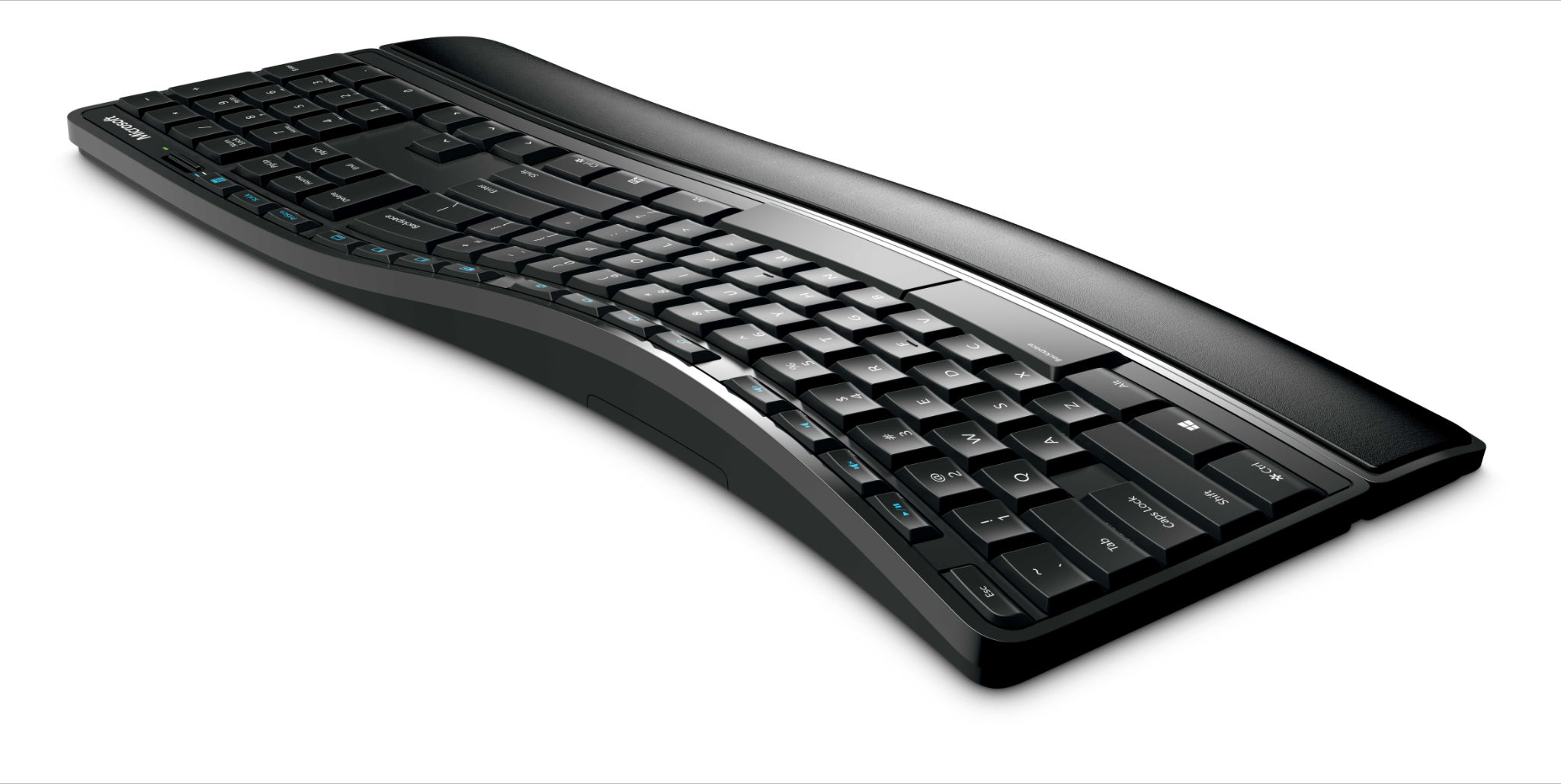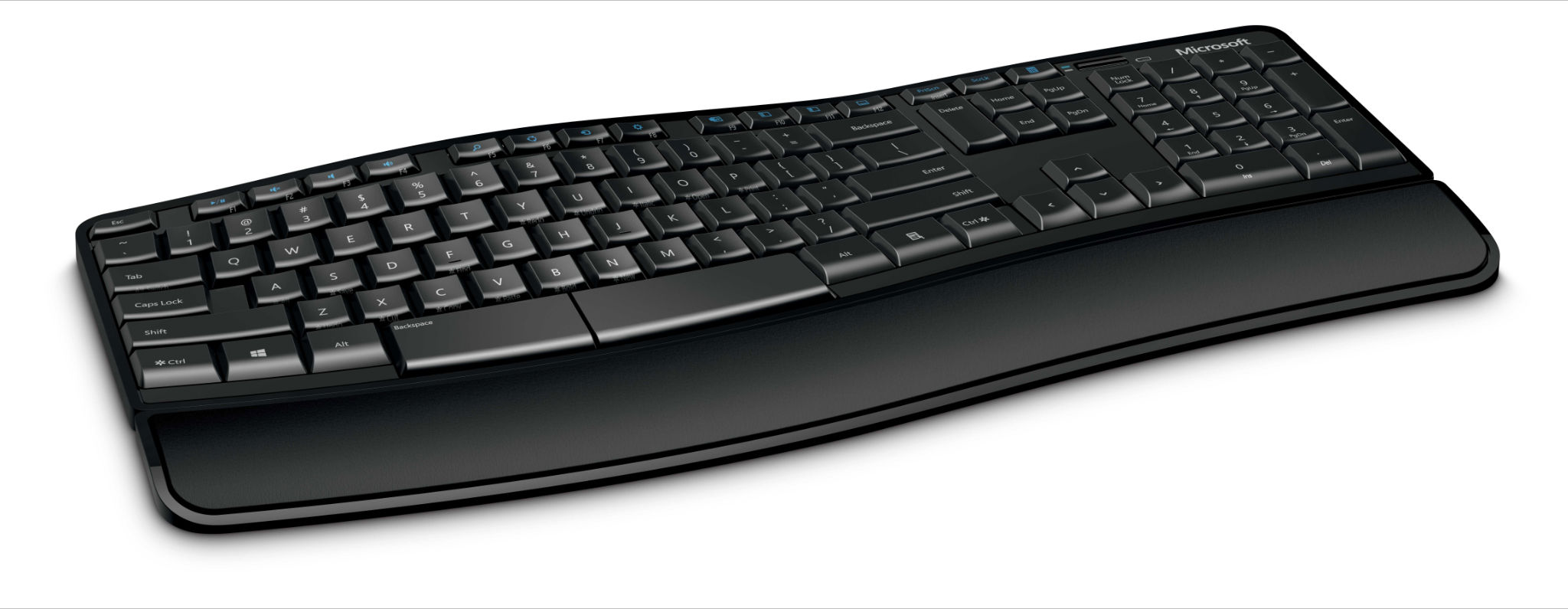Microsoft Unveils Sculpt Comfort Keyboard For Windows 8
Back in July, Microsoft unveiled a number of new keyboards for use with both Windows 8/RT tablets and Windows 8 desktops, but it looks like the company wasn't quite finished revealing new peripherals. Today Microsoft announced the Sculpt Comfort keyboard, big brother to the Sculpt Mobile keyboard. The two do look quite similar, but there are few key differences between them that are worth pointing out.
For starters, the Sculpt Comfort keyboard is quite a bit bigger than it's more mobile sibling, but you've probably already figured that out. As you can see from the images, the Sculpt Comfort keyboard features an ergonomic design that promotes a neutral positions for your wrists and makes the keys easier to reach. The wrist pad you see there is detachable, so if it ends up getting in the way or it turns out you don't have enough space with it attached, those problems are easily solved.

One of the more interesting features of the Sculpt is that it sports a split space bar. A Microsoft study shows that "90% of people use only their right thumb to hit the space bar," which means that more often than not, the left side of the space bar remains untouched. While that won't exactly be viewed as a problem by most, Microsoft has come up with a use for the left side of the space bar, turning it into a spare backspace key. Using it in that way means that you no longer have to reach for the backspace key when you make a mistake. The space bar is also noticeably larger than the space bars found on other keyboards, making it easier to hit when you're typing up a storm.

Like some of the other peripherals we've seen Microsoft touting lately, this keyboard comes with a set of Windows 8 hotkeys, and boasts wireless USB connectivity to boot. The keyboard runs on two AA batteries, and is compatible with Windows 8, Windows RT, Windows 7, and Windows Vista (sorry Windows XP users, you're out of luck with this one). Microsoft has given the Sculpt Comfort keyboard a price tag of $59.99, with a release date of "soon." We'll have more details for you once Microsoft unleashes them, so keep it tuned here to SlashGear!








